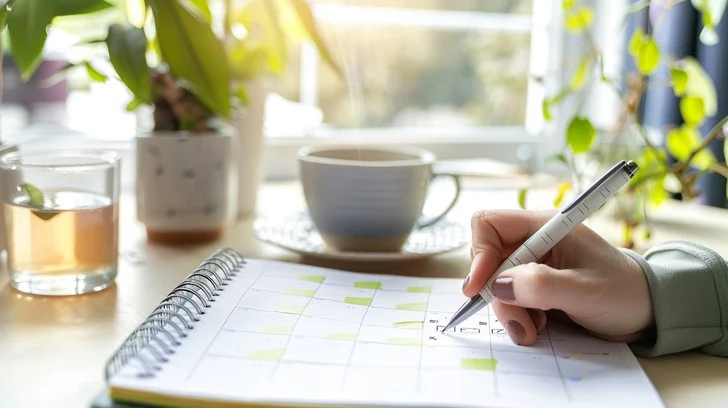Planners are powerful tools — not just for organizing tasks, but for helping you design your day with intention. The problem is, most people try to use a planner that doesn’t match their life. The secret? Build one that actually works for you.
Whether you’re a minimalist, a creative, a digital nomad or someone juggling home and work life, here’s how to create a planner that adapts to your unique rhythm.
Why Your Planner Needs to Match Your Lifestyle
A one-size-fits-all planner often leads to frustration. You forget to use it, it feels too rigid, or it ends up half-filled. That’s not a discipline problem — it’s a design problem.
A great planner should:
- Reflect your priorities
- Adapt to your daily demands
- Be easy and enjoyable to use
When your planner works for you, you’ll actually stick with it.
1. Choose Your Format: Paper or Digital?
The first step is deciding where you’ll plan.
Paper Planners are great for:
- People who enjoy writing by hand
- Reduced screen time
- Visual thinkers
Digital Planners (apps or templates) work best for:
- People who move around a lot
- Those who like reminders and syncing with devices
- Users who want easy editing and backups
No option is “better” — choose what feels natural and accessible to you.
2. Define Your Planning Style
There are different planning styles. Which one matches your energy?
- Time-based: You plan your day by the hour
- Task-based: You list out your top priorities
- Hybrid: You set time blocks but focus on tasks inside them
Also, consider whether you’re:
- A long-term planner (monthly view)
- A short-term operator (daily view)
- A big-picture pers
Mix and match styles if n
3. Include Only What You’ll Actually Use
Overstuffed planners cause guilt when unused. Simplicity is key. Elements you might include:
- Daily task list
- Weekly goals
- Monthly calendar
- Habit tracker
- Gratitude section
- Notes or reflections
Start minimal. You can always add more later.
4. Design Your Daily Layout
Your daily page is where the magic happens. Consider these key elements:
- Top 3 priorities of the day
- Time blocks or appointments
- A place for quick notes or ideas
- Personal reminder: hydration, meals, break time
Example layout:
cssCopiarEditarTODAY’S DATE[ ] Priority 1
[ ] Priority 2
[ ] Priority 3
SCHEDULE
9–10: Deep work
10–11: Admin tasks
...
NOTES
–
Make it visual, functional and easy to repeat daily.
5. Make It Portable
If your planner is too big or bulky, you won’t use it consistently. Whether digital or physical, it needs to:
- Fit in your bag
- Sync across devices (if digital)
- Be easy to access during the day
The best planner is the one you carry with you.
6. Create a Planning Routine
A planner won’t help unless you check in with it regularly. Build a routine:
- Morning (5–10 min): Review goals and schedule
- Midday (2–3 min): Adjust or refocus
- Evening (5–10 min): Reflect and prep tomorrow
Turn planning into a daily ritual — it builds clarity and confidence.
7. Leave Room for Flexibility
Don’t overfill your days. Life happens — delays, surprises, mood changes. Leave blank space to move things around. A flexible planner keeps you moving, even when the day doesn’t go as expected.
8. Add Motivation and Joy
Make your planner something you enjoy using:
- Use colors, stickers, or elegant templates
- Add quotes or personal affirmations
- Decorate with your own style
Motivation matters — make your planner a place that lifts your energy, not just tracks tasks.
Final Thoughts: Your Planner, Your Rules
The perfect planner isn’t the prettiest or the most expensive — it’s the one that works for you. Design it to reflect your lifestyle, not someone else’s template. Keep it simple, keep it personal, and let it evolve with you.
Your planner should make life easier, not harder — start building yours today.

Deixe um comentário